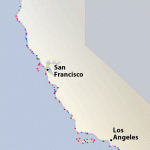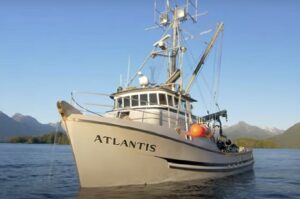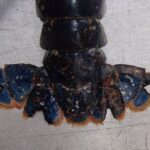Tag Archives: ASMFC
Atlantic fisheries body confirms cyber incident after 8Base ransomware gang claims breach
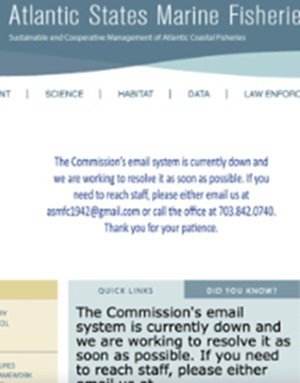 A fisheries management organization for the East Coast is dealing with a cyber incident following claims by a ransomware gang that it stole data. The Atlantic States Marine Fisheries Commission (ASMFC) — an 80-year-old organization created by Congress and made up of officials from the Atlantic coast states — said this week that its email system is down. The organization was forced to create a temporary email address and provide a phone number people can use to contact the information. Tina Berger, director of communications for ASMFC, told Recorded Future News that they are currently “responding to a cyber incident affecting our systems” but did not respond to further questions about whether they are dealing with a ransomware attack. more, >>CLICK TO READ<< 15:04
A fisheries management organization for the East Coast is dealing with a cyber incident following claims by a ransomware gang that it stole data. The Atlantic States Marine Fisheries Commission (ASMFC) — an 80-year-old organization created by Congress and made up of officials from the Atlantic coast states — said this week that its email system is down. The organization was forced to create a temporary email address and provide a phone number people can use to contact the information. Tina Berger, director of communications for ASMFC, told Recorded Future News that they are currently “responding to a cyber incident affecting our systems” but did not respond to further questions about whether they are dealing with a ransomware attack. more, >>CLICK TO READ<< 15:04
Change to legal size of lobster imports proposed
 Draft Addendum XXX, an amendment to American lobster regulations, will consider whether new minimum lobster size increases that take effect Jan. 1, 2025, should apply to lobsters imported into the United States. The proposed change was initiated to meet a federal Magnuson-Stevens Act requirement prohibiting imports of whole live lobster smaller than the U.S. legal minimum possession size. A public hearing will be held online on Tuesday, April 9, from 6-8 p.m. links, webinar, info, more, >>click to read<< 10:19
Draft Addendum XXX, an amendment to American lobster regulations, will consider whether new minimum lobster size increases that take effect Jan. 1, 2025, should apply to lobsters imported into the United States. The proposed change was initiated to meet a federal Magnuson-Stevens Act requirement prohibiting imports of whole live lobster smaller than the U.S. legal minimum possession size. A public hearing will be held online on Tuesday, April 9, from 6-8 p.m. links, webinar, info, more, >>click to read<< 10:19
Dec 15 deadline nears for lobster boat tracking devices in federal waters
![]() Maine lobstermen who fish in federal waters have only a few weeks left until the Dec. 15 deadline to install and activate recently distributed tracking devices on their boats to comply with a regulation of the Atlantic State Marine Fisheries Commission (ASMFC). The Particle One devices were sent by Maine’s Department of Marine Resources (DMR) with an accompanying letter of explanation. As required by the ASMFC regulation approved last year, each minute the boat is moving, the tracker will collect both the time and its position. The device will also monitor a boat when it is tied up every six hours until it moves again. Local lobstermen are concerned monitoring their locations infringes on their privacy, while ASMFC believes it will be useful information to have. Some lobstermen have returned the trackers to DMR. >>click to read<< 13:02
Maine lobstermen who fish in federal waters have only a few weeks left until the Dec. 15 deadline to install and activate recently distributed tracking devices on their boats to comply with a regulation of the Atlantic State Marine Fisheries Commission (ASMFC). The Particle One devices were sent by Maine’s Department of Marine Resources (DMR) with an accompanying letter of explanation. As required by the ASMFC regulation approved last year, each minute the boat is moving, the tracker will collect both the time and its position. The device will also monitor a boat when it is tied up every six hours until it moves again. Local lobstermen are concerned monitoring their locations infringes on their privacy, while ASMFC believes it will be useful information to have. Some lobstermen have returned the trackers to DMR. >>click to read<< 13:02

Catch size a hot topic at Zone B meeting
A declining stock, looming federal rules to protect right whales and the court fights against them, how required gear and reporting changes will be paid for — Zone B lobstermen had a lot of industry news to talk about April 12 at Mount Desert Island High School. Discussion centered mainly on newly proposed minimum (and maximum) legal catch sizes to bolster the lobster stock. “I’ve heard at all council meetings, it’s not if you act, it’s when you act,” said Patrick Keliher, commissioner of the Maine Department of Marine Resources. “It’s almost like no one is taking into account what we’re seeing,” Zone B Council Vice Chairman James Hanscom said. “As an industry, we’re handling a lot of lobsters.” Several lobstermen and council members at the meeting had attended a March ASMFC meeting in Ellsworth and were familiar with proposed management measures that would increase the minimum legal size for landed lobster. >click to read< 16:20
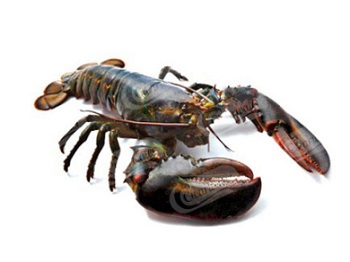
ASMFC Public Hearing on American Lobster Draft Addendum XXVII
The Atlantic coastal states of Maine through New York have scheduled hearings to gather public input on Draft Addendum XXVII to Amendment 3 to the Interstate Fishery Management Plan for American Lobster, which considers measures to increase protection of the Gulf of Maine/Georges Bank (GOM/GBK) spawning stock. Some hearings will be conducted in-person, and some hearings will be conducted via webinar. Additional details on participating in the webinars can be found later in this release. Massachusetts Virtual Hearing on March 15, 6PM The public hearing details are as follows: >Click to read< 12:17
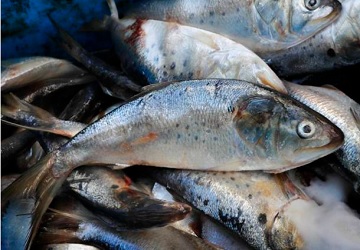
Virginia Regulators to Consider Changes to Menhaden Fishing Regulations
Virginia regulators will consider changes to commercial menhaden fishing in the Chesapeake Bay following requests from recreational anglers to put an end to the fishery. The proposals follow repeated requests from the Virginia Saltwater Sportfishing Association to stop menhaden fishing in the Bay, including a petition of 11,000 signatures that was presented to the office of Republican Gov. Glenn Youngkin earlier this year. Reedville-based Omega Protein, the lone player in the Bay’s menhaden reduction fishery, which processes catches into fishmeal or fish oil, says the new regulations take away available fishing grounds that include uninhabited areas. Taking operations completely out of the Bay into less safe conditions in the ocean would ultimately force the company to stop operating. >click to read< 11:51
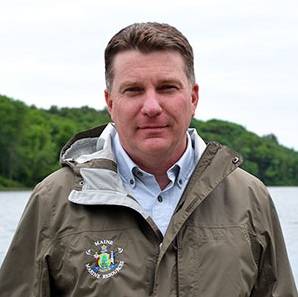
Maine: Updates to Lobster Industry from Commissioner Keliher
As has been the case over the past several years, there is no shortage of issues facing the lobster industry. I am keenly aware what all the uncertainty around right whales does to both the people and businesses in this industry, and I am afraid that an end to that uncertainty does not seem to be in sight. However, major changes could be identified soon, depending on what a federal judge decides this fall. In addition to right whales, there have been continued discussions at ASMFC about whether there are further management changes needed to protect the resiliency of the lobster stock. Finally, the market challenges and resulting price impacts this summer have generated a lot of calls and questions to my office about what DMR can do to improve this situation. I wanted to provide updates on all these topics, to keep you as informed as possible as these situations evolve. >click to read< 13:57
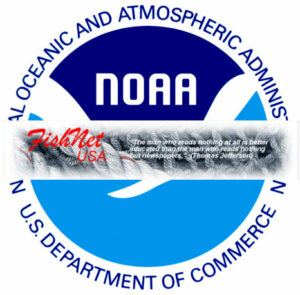
Fisheries management isn’t supposed to be robbing Peter to pay Paul
MAFMC and ASMFC Approve Changes to Commercial and Recreational Allocations of Summer Flounder, Scup, and Black Sea Bass,,, For all three species, these changes result in a shift in allocation from the commercial to the recreational sector. At the same time, using the same “scientific” rationale to disguise what seems nothing more than a blatantly political decision, the Gulf of Mexico Fishery Management has recommended that the red grouper fishery also be reallocated,,, If NOAA/NMFS is allowed to continue using the new MRIP Fishing Effort Survey, every mixed use fishery from Maine through Texas should expect attempts at quota allocation shifts from the commercial to the recreational sector. >click to read< By Nils Stolpe/FishnetUSA 13:52
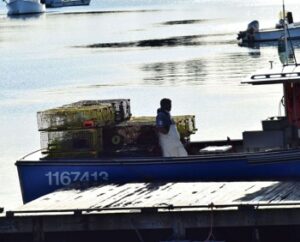
Lobster stock levels remain high in Gulf of Maine, but there is cause for concern
The “now” looks solid for local commercial lobster fishery, based on findings reported in the 2020 Atlantic States Marine Fisheries Commission Lobster Benchmark Stock Assessment, which reported the stock at “record high abundance levels.” The good news continued,, The news for southern New England, including southern Maine, remained poor, with a depleted fishery and no signs of resurgence. The research was conducted by several organizations, including the Department of Marine Resources, Gulf of Maine Research Institute and the University of Maine’s Sea Grant program and Lobster Institute. The assessment, released in October, was based on surveys conducted from 2016 through 2018. However, once the research turns to lobster settlements the future does not look as bright. >click to read< 18:29

Marine Resources Committee off to an ambitious start
On Tuesday, the committee scheduled public hearings on two bills submitted on behalf of the Department of Marine Resources. The first, LD1922, would establish a special commercial fishing license for menhaden.,, Rep. Genevieve McDonald (D-Stonington) sponsored LD1922 on behalf of DMR to address possible changes in the way the menhaden fishery is managed. Other bills relating to other fisheries, and other interesting updates,, >click to read< 16:23
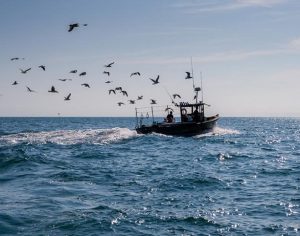
Regulators Take Action to Stem Striped Bass Decline
Responding to the precipitous drop in the Atlantic striped bass population, the Atlantic States Marine Fisheries Commission (ASMFC) has mandated an 18 per cent cut in commercial and recreational harvest quotas for 2020.,,, The new addendum limits recreational fishermen to one striped bass per day,,, Mr. McKiernan said he doesn’t believe that pressure from commercial fishermen, who are limited to 15 fish per day, a 34-inch minimum and two fishing days a week, plays a major role in the plummeting population. >click to read< 18:52
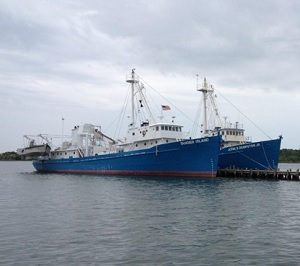
The One that Didn’t Get Away: The Atlantic’s Largest Menhaden Fishing Fleet Faces Penalties
At a meeting this week in New Hampshire, commissioners from Florida to Maine voted unanimously to find Virginia out of compliance. Eric Reid is a commercial fisherman who represented Rhode Island at this week’s meeting. “I got boats sitting at the dock too. And when the fed said fishing is over, we stayed tied to the dock. We didn’t write a letter saying ‘hey I’ve got 150 employees as well and we need to make money and we’re going.’ We stopped,” Reid noted. “It kinda rubs my nose in it a little bit. I don’t care for it.” >click to read< 08:50
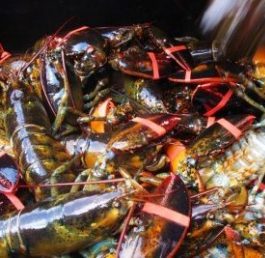
“Our landings are way off ” Maine landed less than 50 million pounds by end of September
As of the end of September, Maine fishermen had landed less than 50 million pounds of lobster, according to Commissioner Pat Keliher of Maine Department of Marine Resources. Keliher told the American Lobster Management Board on Monday that some of the year-to-date decline could be because lobsters molted late this year. The bulk of Maine’s lobster fleet catches new shell lobster, or lobsters whose new shells are just starting to firm up after shedding their old ones. “Our landings are way off. Now that doesn’t mean the sky is falling. That means we certainly had a very big delay in the shed.” >click to read< 15:39
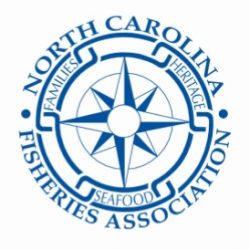
North Carolina: Upon further exploration of the matter, Spanish Mackerel fishery to reopen!
On September 10, 2019, I wrote you denying your request to have DMF issue a proclamation,,, Upon further exploration of the matter,,, Secretary Regan letter about Spanish Mackerel, Attached please find a letter from Secretary Michael Regan to Glenn Skinner concerning the Spanish Mackerel fishery. Mackerel harvest will reopen with a 500 pound daily trip limit sometime next week! Please stop calling Secretary Regan, Director Murphey and DMF staff on this issue, with thanks to those who took the time to call., >click to read < 22:45
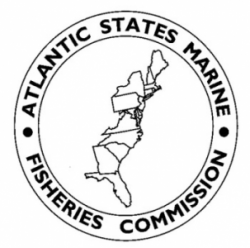
ASMFC Atlantic Herring Days Out Conference Call, Scheduled for July 10, 2019 at 1:00 PM
The Atlantic States Marine Fisheries Commission’s Atlantic Herring Management Board members from Maine, New Hampshire, and Massachusetts set effort control measures for the Area 1A (inshore Gulf of Maine) fishery via Days Out meetings/calls. Atlantic Herring Board members from Maine, New Hampshire, and Massachusetts are scheduled to convene via conference call to consider changing the start date of the Area 1A fishery on: Wednesday, July 10th at 1:00 PM >click here for more info, and links<13:42
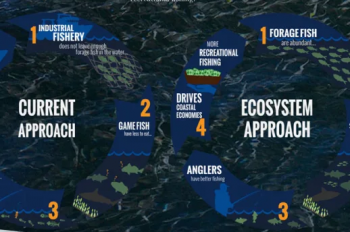
A Forage Fish War – Canadian company targets critical forage fish in Atlantic and Gulf
The two U.S. menhaden fisheries are in the Chesapeake Bay and the Gulf,,, Omega Proteins, headquartered in Canada, has sought certification that the fishery is sustainable.,, Now it has sought the same certification in the Gulf of Mexico, according to a joint statement from the American Sportfishing Association, the Coastal Conservation Association, and the Theodore Roosevelt Conservation Partnership.,, “The ASA, Theodore Roosevelt , and CCA, have formally objected, That steep price (of MSC certification) caused Sport Fish Magazine writer Doug Olander to pen a satirical op-ed,,,That prompted a swift backlash by Omega Proteins, “According to the ASMFC [Atlantic States Marine Fisheries Commission], Striped Bass are overfi…>click to read<17:23
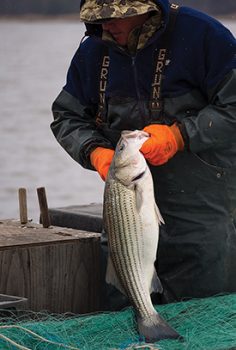
ASMFC says rockfish harvests need to be cut 17 percent
East Coast fishery managers last week took the first steps toward cutting the striped bass harvest 17 percent next year to help end overfishing of the popular species, which has been in decline for years. Options about how the harvest should be reduced will be presented to the Atlantic States Marine Fisheries Commission at its August meeting, after which proposals would go out for public comment. Final measures could be approved in October.,,, The issue of such “dead discards” — fish that die after being released by anglers — has gained more attention from fishery managers because the new assessment found,,, >click to read<08:45
Gerald Almy: Virginia’s trophy saltwater striped bass season canceled – >click to read<09:19
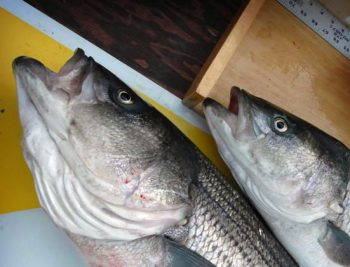
Maryland overfishing imperils rockfish population – Recreational anglers are largely responsible
“The recent stock assessment shows that early action is needed to slow the decline and restore this fishery to sustainable levels,” Virginia Marine Resources Commissioner Steven G. Bowman said in a statement.,,, Recreational anglers are largely responsible. Since 2008, they have killed eight times more striped bass than commercial fishermen, with Maryland anglers harvesting a huge haul: nearly three times the number of fish taken by Maine, New Hampshire, Rhode Island, Connecticut, Delaware and North Carolina — combined. >click to read<14:49
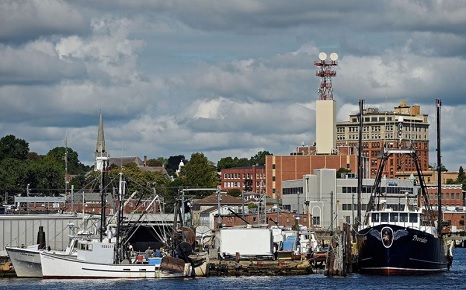
More fluke could be coming for Connecticut fishermen
Last week, the MAFMC and the ASMFC increased the annual coastwide commercial quota for summer flounder for 2019-21 to 11.53 million pounds. While states will continue to receive allocations based on their historic landings up to 9.55 million pounds, landings after that will be divided equally among mid-Atlantic and southern New England states.>click to read<10:33
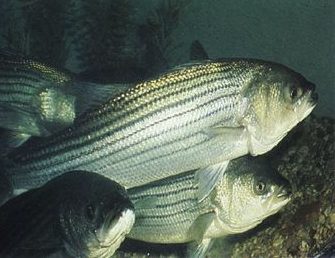
ASMFC expected to set stricter regs for harvesting striped bass
A new status review has found the striped bass population to be in worse shape than previously thought, a result that will almost certainly trigger new catch restrictions for the prized species next year in the Chesapeake Bay and along the East Coast. A preview of a soon-to-be-released stock assessment presented in February to the Atlantic States Marine Fisheries Commission indicates that the striped bass population is overfished and has been for several years.,,, While most everyone agrees on the need to act, many caution that the stock is nowhere near the crisis level that spurred the previous moratorium. Today’s spawning stock biomass, while declining, is still four times higher than it was in the early 1980s.>click to read<10:53
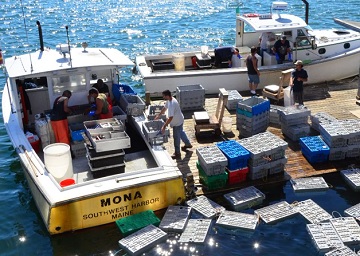
Whales and license laws top lobster industry agenda
The blowy weather that made lobster fishing a hard chance recently might well have been a blessing in disguise. The wind and cold certainly have given shorebound Maine lobstermen a good chance to learn about the tempests engulfing their industry in the Legislature and the world of fisheries regulation. Already beset by limits on how they fish — trap numbers, trawl length, the kind and strength of rope used for groundlines and buoy end lines are all regulated in the name of conservation or protecting endangered northern right whales — lobstermen are waiting to see what new rules regulators may impose on the fishery. >click to read<11:45

Broken Promise? – Thiele And Lavalle call on N.Y. State to keep Promise, File Legal Action Against Inequitable Federal Fishing Quotas
Assemblyman Fred W. Thiele, Jr. and State Senator Kenneth P. LaValle today called upon New York State to keep its promise to the state’s commercial fishermen and bring litigation immediately to strike down the inequitable and discriminatory fluke quotas that are crippling the economic viability of the state’s commercial industry. This week, the State Department of Conservation announced that the fluke fishery would be closed in state waters until the end of the month and would then re-open with a paltry harvest limit of 50 pounds per day. In 2013, Governor Cuomo visited Montauk and promised to sue the federal government over the state’s low share of the East Coast fluke fishery. That promise was reiterated again by the Governor in late 2017. This spring, instead of bringing litigation, the state filed a petition with the U.S. Department of Commerce protesting the quota. >click to read<17:19
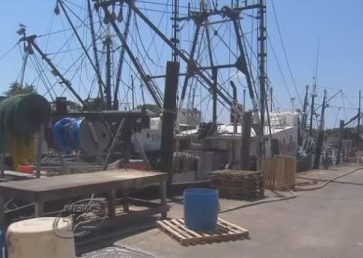
New Jersey Lawmakers Calling on Feds to Lift Strict Limits on Fluke Fishing for This Season
The State Assembly is asking the federal government to suspend a 40 percent quota reduction that enters its second year until a new fluke stock assessment is completed and new rules can be established based on those findings. “NOAA recommendations for the 2017 and 2018 seasons were based on flawed data collected from inconsistent sampling and methodology,” said Assemblyman Edward H. Thomson (R-Monmouth/Ocean), who sponsored the resolution to freeze limits to 2015 levels.,, “New Jersey desperately needs Washington to stop relying on flawed numbers and bad science and complete newer, more precise stock assessments so we can accurately assess the health of our fluke stocks while protecting our fishermen’s livelihoods,” >click to read<12:55
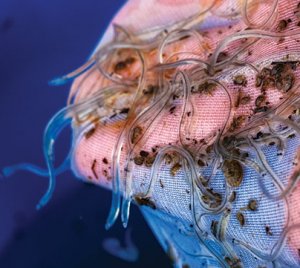
Elver fishermen push for higher quota, say resource isn’t endangered
Despite the abrupt end to the elver season last month due to poaching, elver fishermen continue to support an increase in Maine’s annual catch limit. The Bangor Daily News reported that more than 60 elver fishermen appeared at a hearing held Wednesday by the Atlantic States Marine Fisheries Commission — the interstate body that oversees the eel and elver fishery, among others — to consider whether to raise the quota from 9,688 pounds to 11,749 pounds. >click to read<13:47
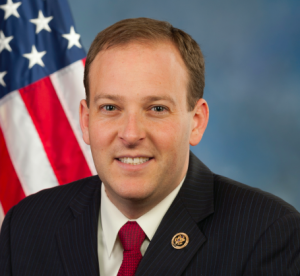
Rep. Zeldin Statement in Opposition to Black Sea Bass Quota “Deal”
“This ‘deal’ is no victory for New York fishermen and is worse than status quo with other states receiving an increase. New York continues to roll over for the ASMFC while New York fishermen get screwed. I will not pull the wool over the eyes of hardworking New York fishermen and claim victory. Any deal on behalf of New York fishermen needs to place them on a level playing field with New Jersey and Connecticut, and this deal, cementing a quota cut for local fishermen in comparison to other states, is not equitable. I will not accept anything less than what New York fishermen, both recreational and commercial, deserve – parity.” >click to read<21:13
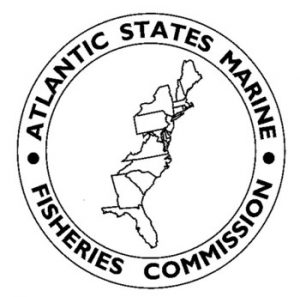
ASMFC Spring Meeting in Arlington, VA- April 30 – May 3, 2018
The Atlantic States Marine Fisheries Commission’s Spring Meeting will be April 30 – May 3, 2018 at The Westin Crystal City (Telephone: 703.486.1111), located at 1800 South Eads Street, Arlington, VA. Meeting materials are available on the Commission website at http://www.asmfc.org/home/2018-spring-meeting. Supplemental materials will be posted to the website on Wednesday, April 25, 2018. The meeting will be broadcast live on the internet, >click to listen<15:08

Fishing quotas on black sea bass draw lawmakers’ ire
New York lawmakers on Sunday pushed back against federal fishery quotas and regulations that reduce the amount of black sea bass fishermen can catch in the upcoming season. “New York State needs to take an immediate stand against the unfair black sea bass allocation coming out of the ASMFC [Atlantic States Marine Fisheries Commission] by issuing its own fair and equitable quota and going into what is formally known as noncompliance,” Rep. Lee Zeldin (R-Shirley) said Sunday at a news conference with fishermen in Patchogue. “Going into noncompliance is never the first option, but at this late hour it may be the only one.”>click here to read< 18:09

Rep. Zeldin Slams ASMFC Black Sea Bass Allocation, Calls for Equitable Fishing Quotas
Congressman Lee Zeldin (R, NY-1) issued the following statement following the Atlantic States Marine Fisheries Commission (ASMFC) proposed allocation for black sea bass for the 2018 season, which would unfairly cut New York State’s share by up to 12%, while other states will see their allocations grow: “With the vast majority of Long Island fishing taking place in waters shared with New Jersey and Connecticut, such as the Atlantic Ocean and Long Island Sound, it is unfair that New York anglers are, once again, being penalized with smaller fishing quotas than neighboring states. >click to read<14:08
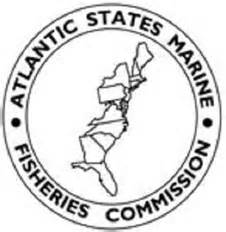
ASMFC to require Maine to collect catch reports from all lobstermen
An interstate fisheries commission voted Tuesday to require all licensed lobstermen in Maine to start filing catch reports within the next five years. Lobstermen in Maine, where currently only 10 percent of licensed lobstermen are required to file catch reports, overwhelmingly have been opposed to such a requirement. Other states, all of which have lobster fisheries smaller than Maine’s, already require 100 percent of active lobster harvesters to file daily catch summaries. Maine’s Department of Marine Resources also has opposed requiring all lobstermen to file reports. >click to read< 16:08

ASMFC Winter Meeting in Arlington, VA- February 6-8, 2018
Final Agenda >click to read<The agenda is subject to change. Bulleted items represent the anticipated major issues to be discussed or acted upon at the meeting. The final agenda will include additional items and may revise the bulleted items provided below. The agenda reflects the current estimate of time required for scheduled Board meetings.,, Board meeting proceedings will be broadcast daily via webinar >click here to listen< beginning February 6th at 9:30 a.m. and continuing daily www.asmfc.org/ 15:28





































